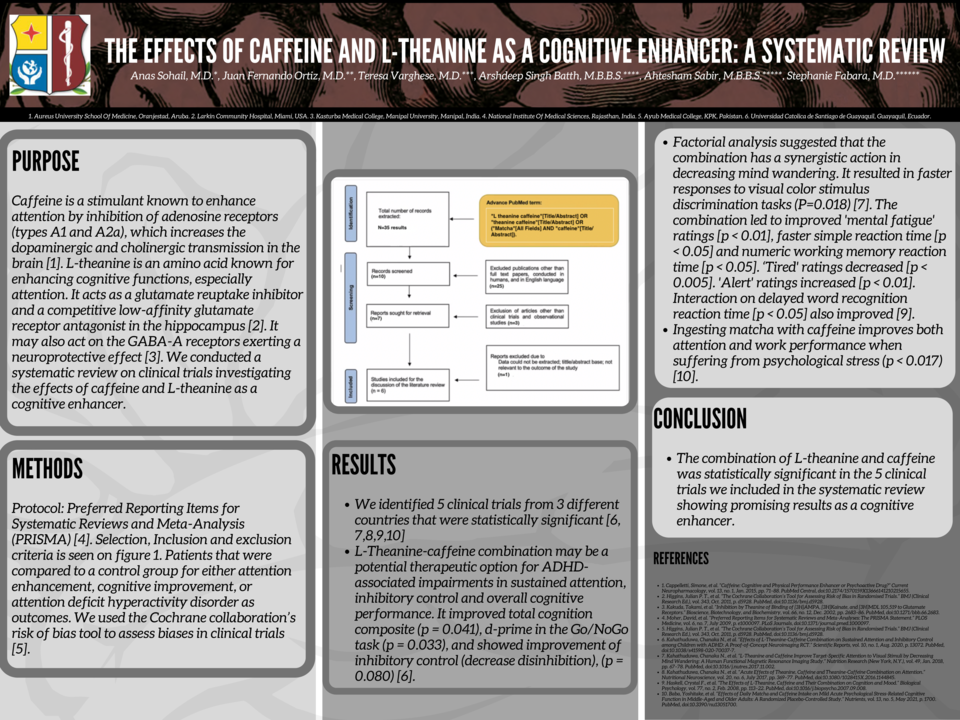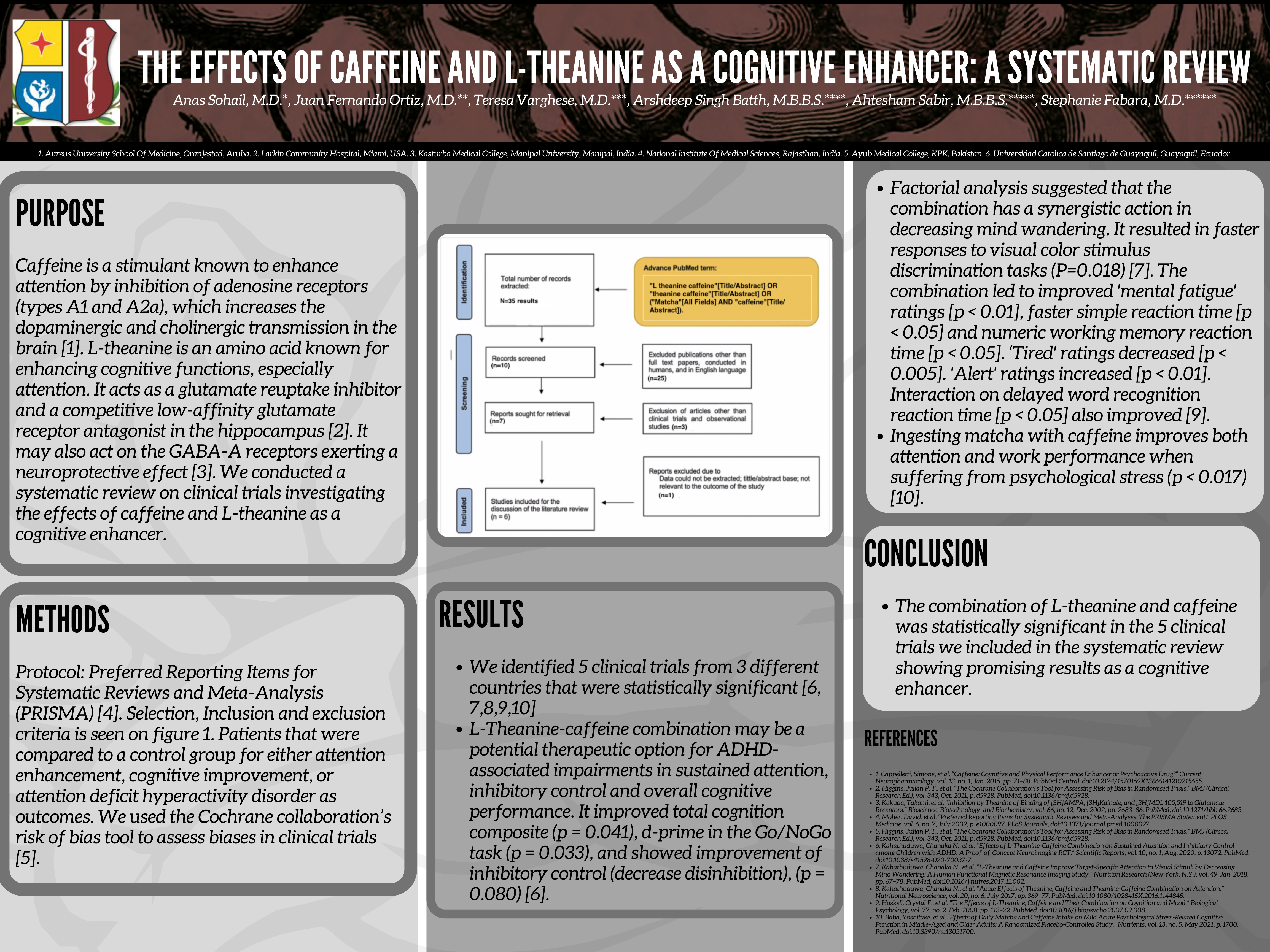Abstract
The Effects Of Caffeine and L-Theanine as a Cognitive Enhancer: A Systematic Review
By: Anas Sohail, M.D.1, Juan Fernando Ortiz, M.D.2, Teresa Varghese, M.D.3, Arshdeep Singh
Batth, M.B.B.S.4, Ahtesham Sabir, M.B.B.S.5, Stephanie Fabara, M.D.6
1. Aureus University School Of Medicine, Oranjestad, Aruba. 2. Larkin Community Hospital,
Miami, USA. 3. Kasturba Medical College, Manipal University, Manipal, India. 4. National Institute Of
Medical Sciences, Rajasthan, India. 5. Ayub Medical College, KPK, Pakistan. 6. Universidad
Catolica de Santiago de Guayaquil, Guayaquil, Ecuador.
Purpose:
Caffeine is a stimulant known to enhance attention by inhibition of adenosine receptors (types
A1 and A2a), which increases the dopaminergic and cholinergic transmission in the brain. L-
theanine is an amino acid known for enhancing cognitive functions, especially attention. It acts
as a glutamate reuptake inhibitor and a competitive low-affinity glutamate receptor antagonist in
the hippocampus. It may also act on the GABA-A receptors exerting a neuroprotective effect.
We conducted a systematic review on clinical trials investigating the effects of caffeine and L-
theanine as a cognitive enhancer.
Methods:
Protocol: Preferred Reporting Items for Systematic Reviews and Meta-Analysis (PRISMA).
Selection, Inclusion and exclusion criteria is seen on figure 1. Patients that were compared to a
control group for either attention enhancement, cognitive improvement, or attention deficit
hyperactivity disorder as outcomes. We used the Cochrane collaboration’s risk of bias tool to
assess biases in clinical trials.
Results:
- We identified 5 clinical trials from 3 different countries that were statistically significant
- L-theanine-caffeine combination may be a potential therapeutic option for ADHD-associated impairments in sustained attention, inhibitory control and overall cognitive performance. It improved total cognition composite (p = 0.041), d-prime in the Go/NoGo task (p = 0.033), and showed improvement of inhibitory control (decrease disinhibition), (p = 0.080).
- Factorial analysis suggested that the combination has a synergistic action in decreasing mind wandering. It resulted in faster responses to visual color stimulus discrimination tasks (P=0.018). The combination led to improved 'mental fatigue' ratings [p < 0.01], faster simple reaction time [p < 0.05] and numeric working memory reaction time [p < 0.05]. ‘Tired' ratings decreased [p < 0.005]. 'Alert' ratings increased [p < 0.01]. Interaction on delayed word recognition reaction time [p < 0.05] also improved.
- Ingesting matcha with caffeine improves both attention and work performance when suffering from psychological stress (p < 0.017).
Conclusion:
The combination of L-theanine and caffeine was statistically significant in the 5 clinical trials we
included in the systematic review showing promising results as a cognitive enhancer.






